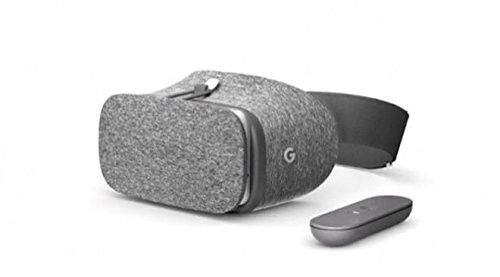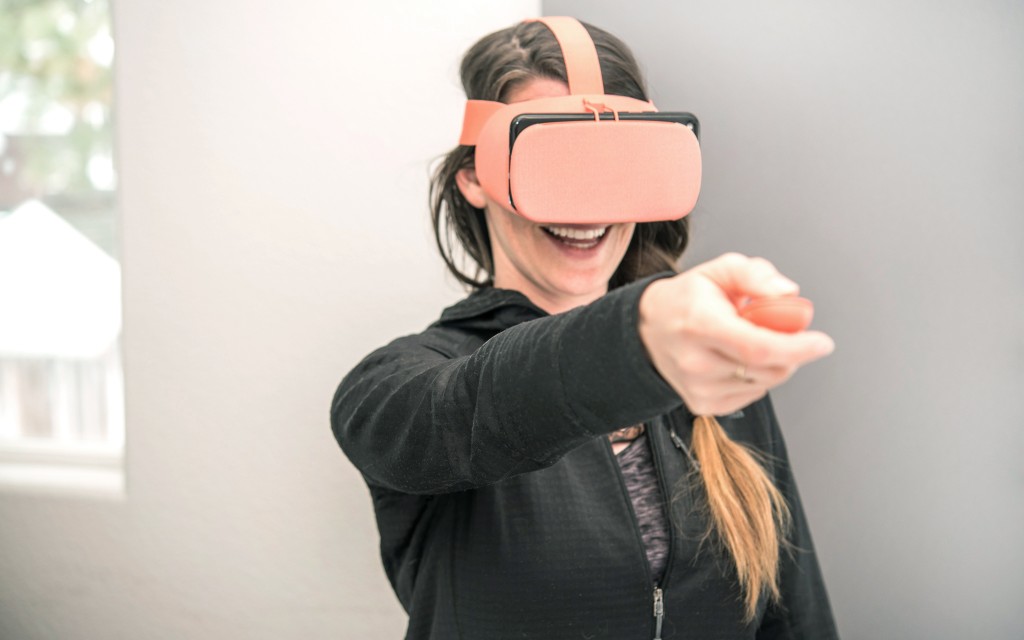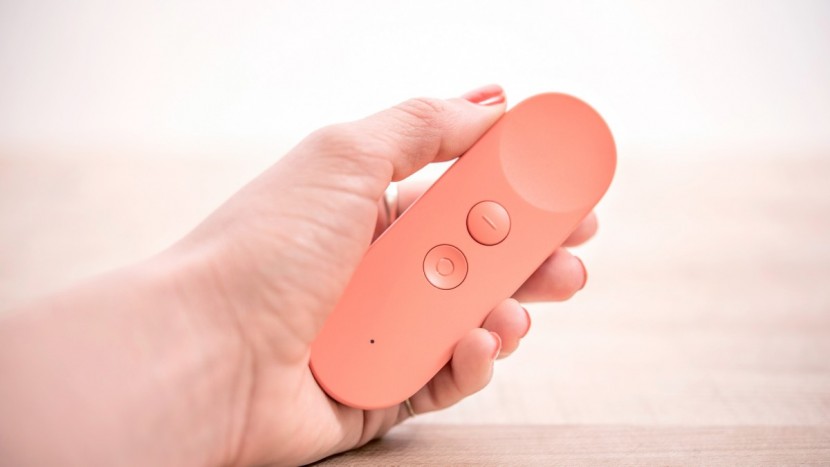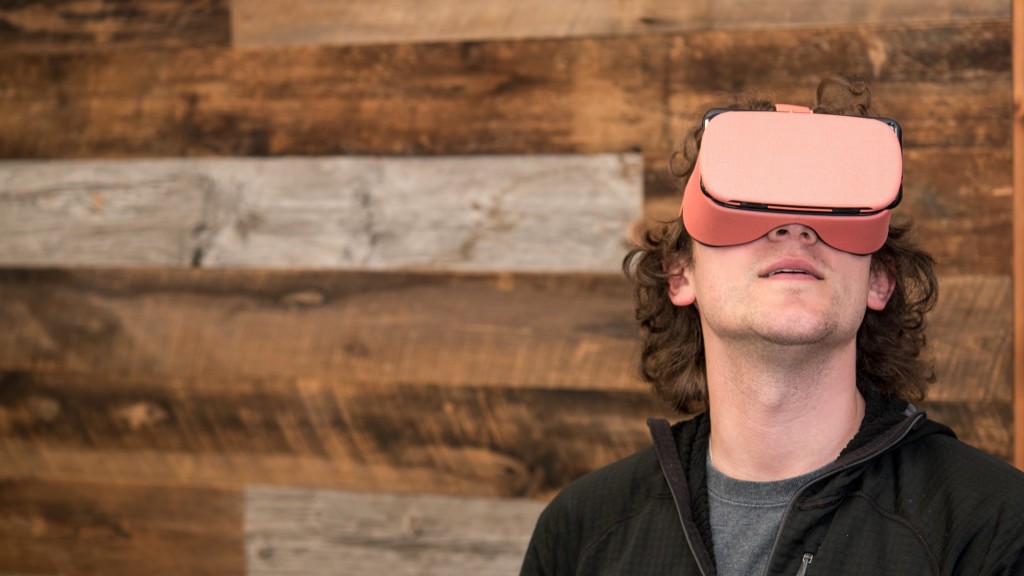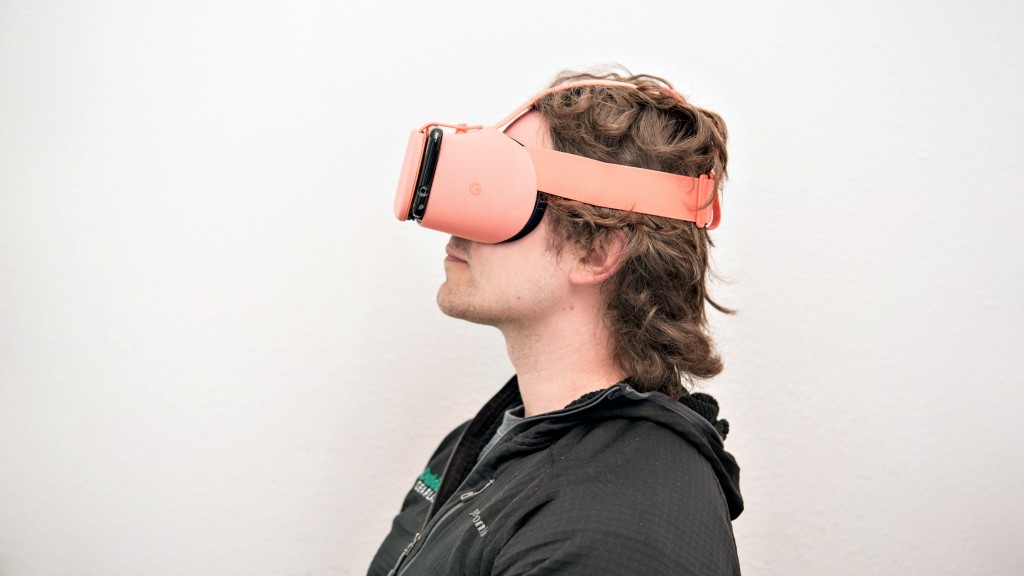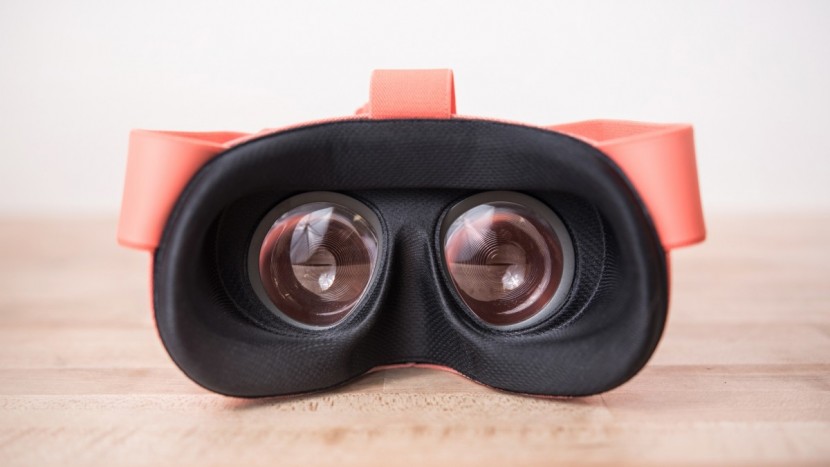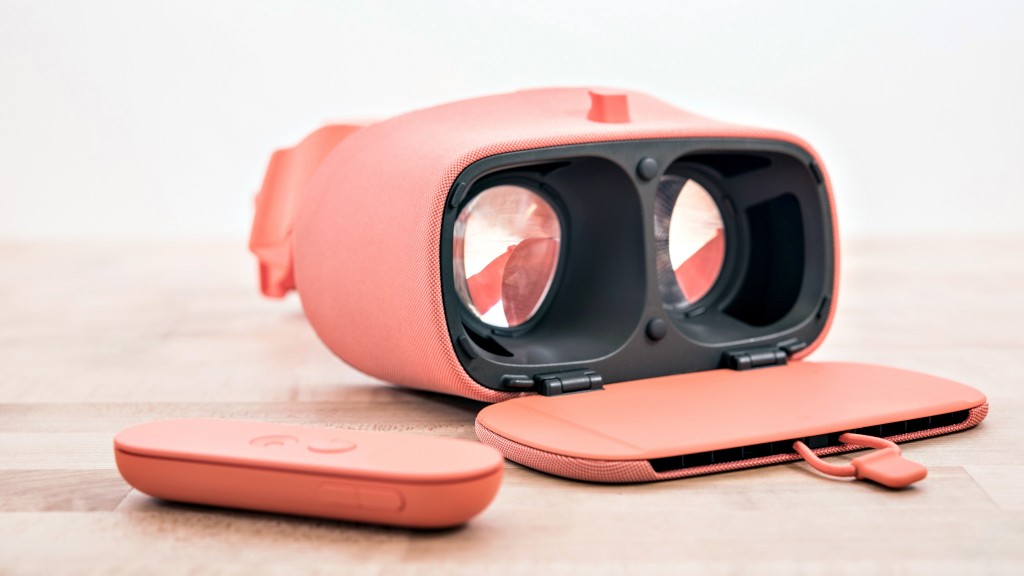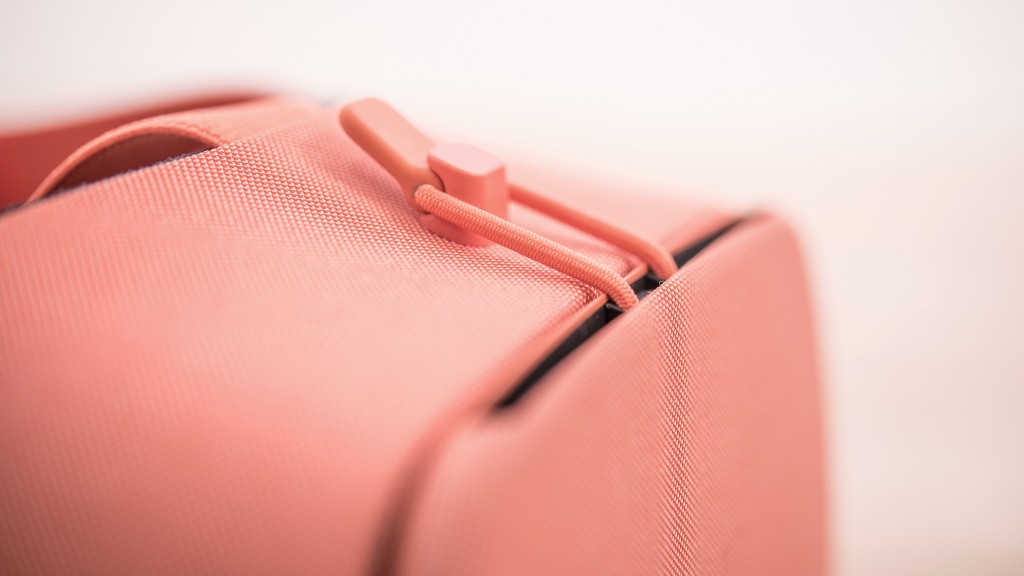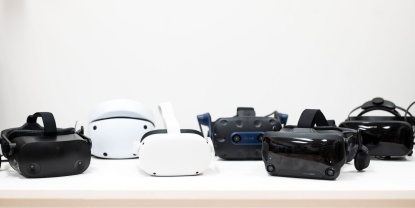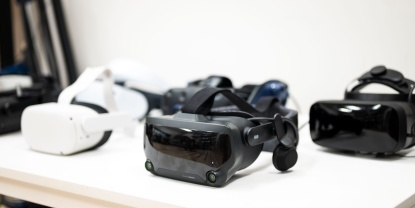Google Daydream View Review
Our Verdict
Our Analysis and Test Results
Building strongly on the success of the Google Cardboard, the Google Daydream View adds a handheld controller to improve the interactiveness of the VR experience and is constructed of a much more pliable material than the Cardboard, greatly improving comfort.
Interactiveness
Meriting the most weight out of any of our metrics, our Interactiveness metric takes credit for 35% of the final score for each product. To determine the score, we compared the methods of interacting with each headset and the relative accuracy of the motion tracking. The Daydream didn't terribly impress us, earning a 4 out of 10 for its relatively subpar showing, with the rest of the group doing much better, highlighted below.
There aren't any buttons on the headset itself, but there is a handheld remote with a touchpad that is used as the primary method of control.
We found the motion tracking of the handheld remote to be decently accurate, only having to occasionally reset the center position of the remote, as it is a little prone to drifting. The motion tracking of the headset is also decently accurate, following wherever we looked without any noticeable lag. The Daydream, like most mobile headsets, only tracks wherever you look, not your motion as you move about the room.
Visual Immersiveness
This metric, accounting for 20% of the overall score, evaluates the overall image quality, the sharpness, and resolution of the display, and the field of view of each headset, as well as whether or not the headset adequately blocked out ambient light. The Daydream substantially improved on its performance in the prior metric, earning an 8 out of 10 for its performance, comparing very favorably with the rest of the group.
The field of view of the Daydream is also on the wider side — around 100° — adding greatly to its immersiveness.
The Daydream does a very good job at blocking out ambient light, only letting in minuscule amounts — a bit of a surprise to use, as it appeared that there are some decently large gaps between the phone and the headset.
The overall image quality is quite good when using the Pixel phone, but just slightly inferior to the Gear VR when using a Samsung S8.
Comfort
Next up in our review is our Comfort metric, accounting for 20% of the overall score. We based the score for each headset on how comfortable it is to wear for long periods of time, whether or not there is enough room to wear glasses, and if there is enough ventilation to keep your face from getting too sweaty. The Daydream earned a 9 out of 10, easily being one of the most comfortable headsets that we have tested to date
The Daydream is substantially more comfortable than the Cardboard, much more appropriate for longer gaming sessions than some of the other headsets, such as the Canbor.
The 2017 edition of the Daydream had some room for glasses, but it was a little on the snug side. However, the 2018 edition remedies this, having significantly more space for spectacles. We also liked the addition of the top strap for the 2018 version, as well as the added heat sink plate to keep your phone from overheating. It also does a decent job of keeping your face from getting sweaty, though some other models have slightly more ventilation.
User Friendliness
Our second to last metric, User Friendliness, comprises 15% of the overall score. The Daydream did decently well, meriting a 7 out of 10 for its showing. We based this on the amount of work it took to get the phone setup for the headset, whether or not you were prone to hitting buttons accidentally, if you had to take the phone out of a case to use the headset, and the amount of effort it took to get headphones plugged in. Overall, the Daydream did quite well compared to the rest of the pack, as highlighted below.
The Daydream is actually one of the easiest mobile headsets to get ready to use, only requiring you to fold out the front of the headset and place your phone in. Even better, this model is by far the most forgiving when it comes to leaving your phone in the case, allowing even bulky rugged or waterproof cases to work without issue.
The strap did cover the volume buttons on the Google Pixel phone, but we never had any issues with buttons being pressed accidentally. The headphone port is also very accessible, providing no difficulty in plugging in a set of headphones.
Ease of Setup
Our final metric, worth 10% of the final score, compared the difficulty in the initial setup between headsets, focusing on the hardware and software, as well as what hardware is required to run the VR headset properly. The Daydream scored very well, earning an 8 out of 10 for being one of the easiest models to get set up, as shown in the following chart.
The hardware setup for the Daydream is exceptionally easy, only requiring you to attach the strap to the remote and charge it. The software setup is just as easy, only taking about 5-10 minutes to download the mobile app and pair the remote. This can take a little bit longer if you don't already have a Google account with a payment method associated with it, but not by much. However, the Daydream is only compatible with a smaller group of phones than other models, but it does have a wider spread of compatible phones than the Gear VR.
Value
The Daydream is a decent value if you already have a Daydream-compatible phone — much more likely with its wider set of compatible phones than the Gear VR.
Conclusion
The Google Daydream is a solid, all-around headset that provides a great introduction to VR without a huge investment. It's very easy to use and will work with the flagship phones for most major manufacturers. It's definitely a product to consider.


